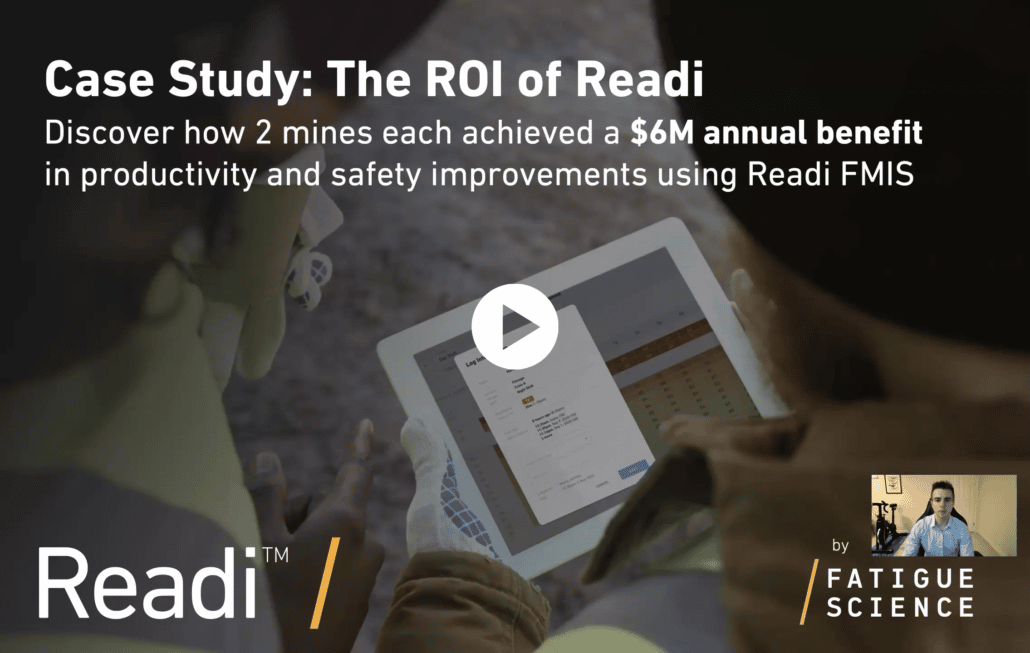On-Demand Webinar
Case Study: The ROI of Readi
Readi FMIS, the Fatigue Management Information System from Fatigue Science, is rapidly growing in use by major mining firms worldwide. In this webinar, we explore how two North American mines are each achieving a projected $6M financial benefit from their use of Readi to manage fatigue.
These gains include projected increases in productivity as well as safety cost reductions.
With substantial results like these, it’s no surprise that worker fatigue optimization is emerging as a C-level strategic priority for the world’s leading firms in mining and heavy industry.
Fatigue’s Impact on Heavy Industry
Throughout mining and other heavy industry sectors, worker fatigue is recognized as a costly and deadly problem – affecting both employers and employees alike.
Most commonly, worker fatigue is associated with major accidents and fatalities, and the notion of an operator “falling asleep at the controls” is an ever-present concern in 24/7 operations.
But while catastrophic losses are certainly the most recognizable effect of fatigue, data increasingly reveals that fatigue’s impact on operations is far more pervasive. It’s now possible to quantify fatigue’s impacts not only on safety, but also on productivity.
Predictive fatigue data, like those provided by Readi FMIS, is the key to calculating fatigue’s full impacts. And fortunately, Readi FMIS enables employers not only to measure fatigue’s impact, but also to prevent some of those losses and make significant gains in operational productivity.
In this webinar, we explore large data sets from two leading mine sites who have been using Readi FMIS in daily operations for over a year. From these data, we quantify the benefits to productivity and safety attributable to the use of Readi. Ultimately, we calculate an ROI for a representative mine site and present next steps on how your mine or industrial operation can achieve the same.
or download our free eBook on the Science of Sleep for industrial workforces
